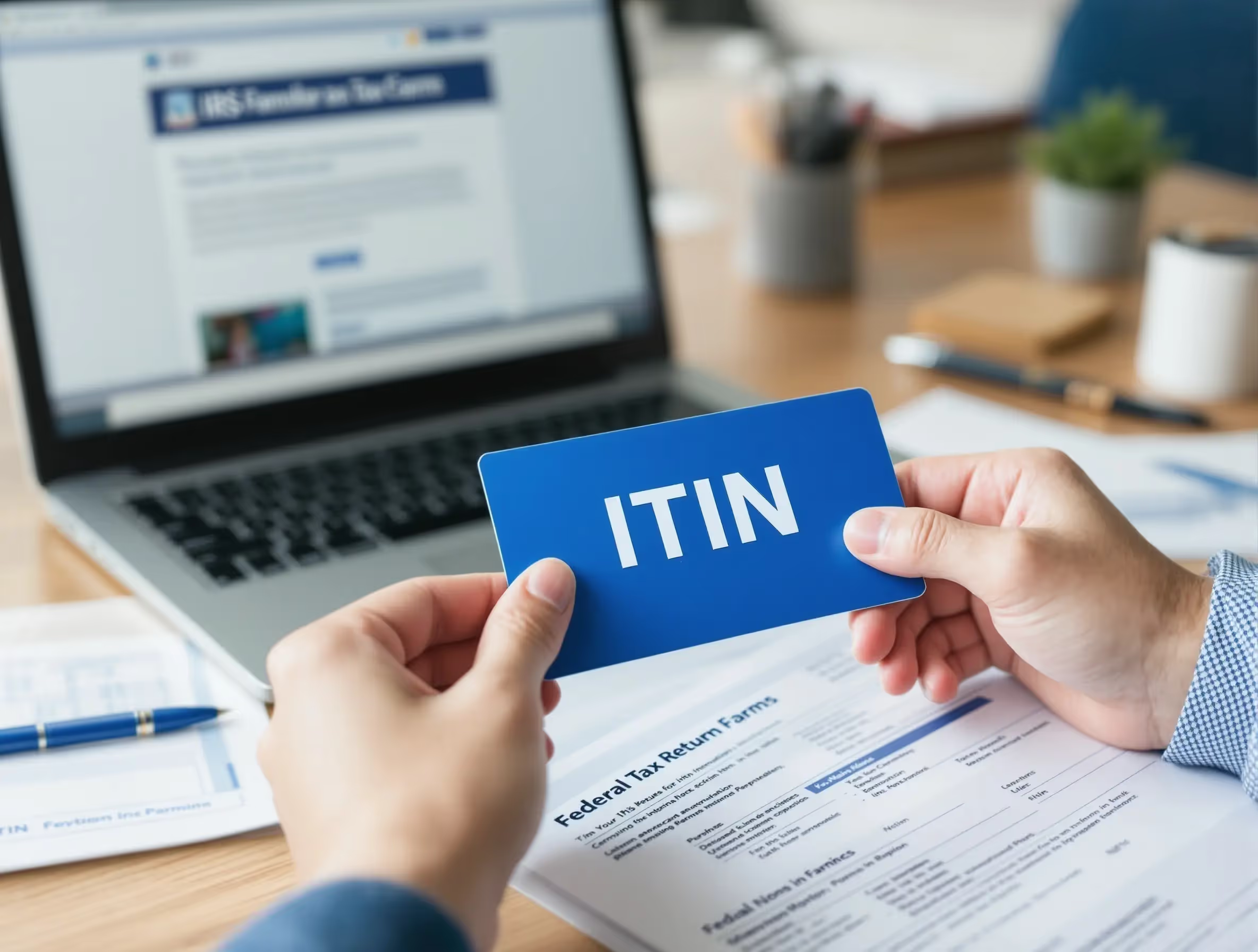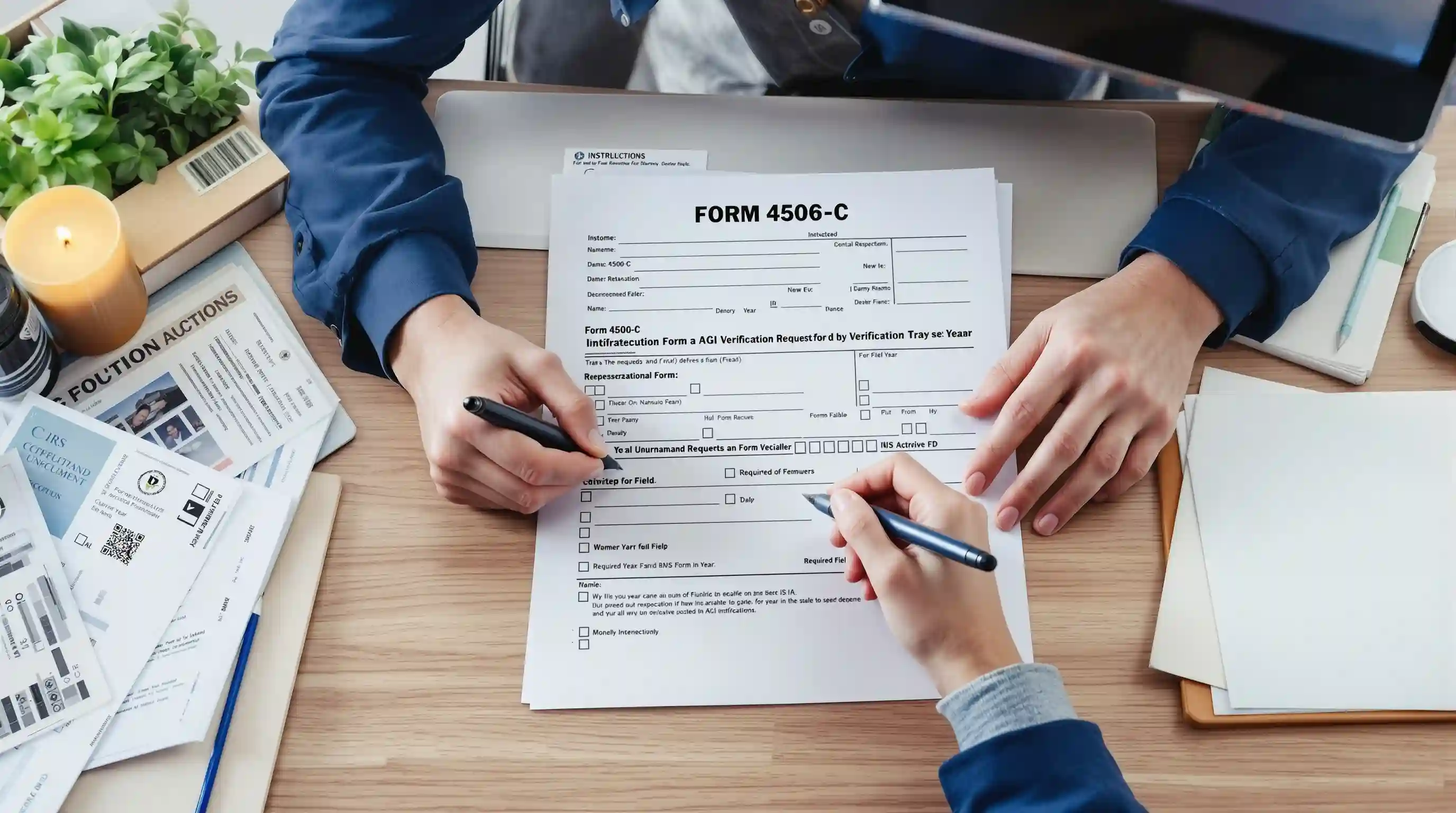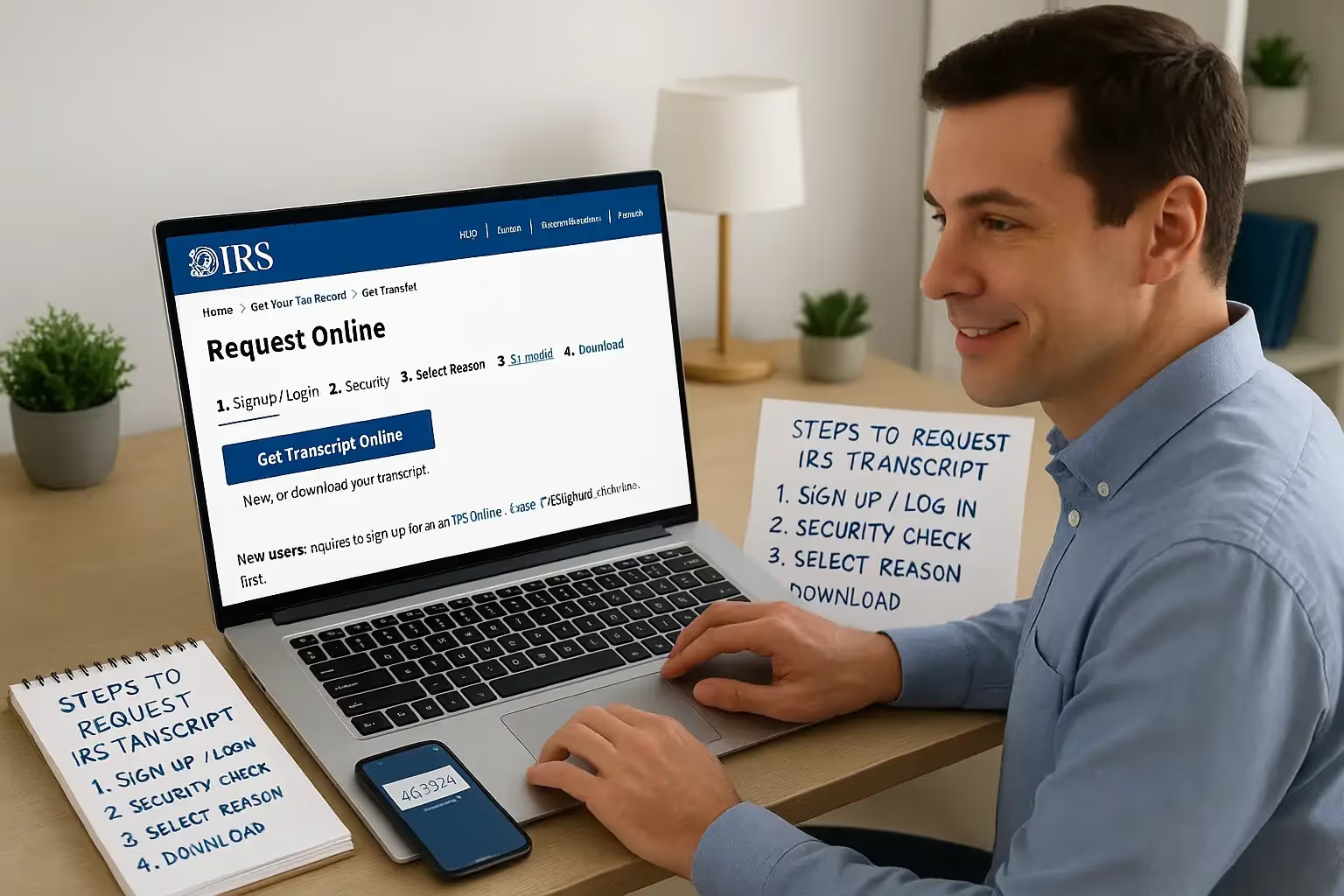
Becoming a Certified Acceptance Agent in 2025 is an opportunity that connects tax professionals and service providers with individuals who cannot obtain a Social Security Number. The Internal Revenue Service authorizes CAAs to help applicants get an individual taxpayer identification number for federal income tax return filing. For many households, including immigrants, nonresident aliens, and international students, this assistance ensures that tax purposes are met while sensitive documentation, such as a passport, remains safe.
The taxpayer identification number ITIN allows eligible individuals without an SSN to file returns, access certain tax benefits, and maintain compliance with federal requirements. When an ITIN applicant works with a CAA, the risk of mailing original documentation is reduced because the CAA can authenticate records and send certified copies. This process helps protect families, spouses, and dependents while ensuring IRS issues are handled correctly.
By 2025, the demand for CAAs continues to grow as existing ITIN renewals and new applications rise. For tax professionals, understanding how to apply for an ITIN and guiding clients through the documentation steps creates trust, stability, and improved compliance outcomes. This guide offers a step-by-step path so individuals and professionals can confidently navigate requirements.
What Is a Certified Acceptance Agent?
A Certified Acceptance Agent (CAA) is an individual or organization authorized by the Internal Revenue Service to help applicants obtain an individual taxpayer identification number. This designation allows tax professionals to authenticate documents and assist those who cannot qualify for a Social Security Number but must still file a federal income tax return.
CAAs simplify the process for immigrants, spouses, dependents, and other eligible persons while reviewing and validating identification records such as passports and birth certificates.
- They prepare and attach a Certificate of Accuracy to Form W-7, ensuring the IRS receives validated records without requiring original submissions.
- A CAA can notify applicants of errors before documents are sent, preventing delays that may arise from missing pages or incomplete information.
- They act as a point of contact for applicants who may feel uncertain when responding to IRS notices or instructions.
- Their assistance supports compliance with tax purposes, such as reporting income and claiming certain credits available to those with an existing ITIN.
The Role of CAAs in Compliance and Security
The responsibilities of a CAA extend beyond simple paperwork assistance. They provide security for applicants who may be overseas, ensuring documentation does not need to be mailed to the IRS in its original form. Their role also supports federal requirements by ensuring that every household member, including a spouse or child, is properly documented when applicable.
The Internal Revenue Service relies on CAAs to reduce errors in ITIN applications, improving the accuracy of issued numbers.
- They offer applicants free guidance on completing forms correctly and using available IRS tools, such as online instructions for Form W-7.
- CAAs reassure applicants that their sensitive documentation remains safe while meeting deadlines and reporting obligations.
CAAs serve as trusted partners for both the IRS and applicants. Their responsibilities help streamline federal processes, enhance taxpayer confidence, and ensure individuals meet income reporting obligations without unnecessary stress—their presence in the tax system benefits professionals and their communities.
Individual Taxpayer Identification Number (ITIN) Explained
The individual taxpayer identification number is a critical tool established by the Internal Revenue Service to allow individuals without a Social Security Number to meet federal tax obligations. This number helps persons who are not eligible for an SSN file a federal income tax return, claim certain credits, and fulfill requirements for reporting income. An ITIN also applies to spouses and dependents when applicable, ensuring that entire households can remain compliant with tax purposes.
Core Features of the ITIN
- An ITIN is a nine-digit number beginning with the number nine, designed exclusively for federal tax reporting.
- It allows an ITIN applicant to file a tax return, report earned income, and attach required documentation without an SSN.
- This number cannot be used to prove legal immigration status or authorize work in the United States.
- It is commonly issued to citizens of other countries, international students, and immigrants who must meet U.S. reporting requirements.
- The IRS issues ITINs to support accurate identification when a person is not eligible for an SSN but still has tax responsibilities.
Reasons for Needing an ITIN
- Filing a federal income tax return when ineligible for an SSN.
- Claiming certain credits, such as those available to households with dependents, spouses, or children who qualify.
- Ensuring that overseas applicants or nonresident aliens comply with U.S. reporting requirements.
- Supporting financial transactions in the United States, such as investments, property ownership, or business income.
- Renewing an existing ITIN that has expired after non-use for three consecutive years.
The taxpayer identification number ITIN ensures all eligible persons can participate in the U.S. tax system. For many families, it allows each household member to be adequately recorded when filing a return, reducing the likelihood of IRS issues or rejected filings. The ITIN also enables people to receive notices, credits, and acknowledgments related to their returns.
Limitations of the ITIN
- It cannot replace a Social Security Number for employment purposes.
- The ITIN does not provide eligibility for Social Security benefits or earned income credits restricted to SSN holders.
- To authenticate identity, an ITIN applicant must still provide a valid passport, birth certificate, or other documentation.
- The IRS does not automatically renew ITINs, requiring individuals to complete the renewal process when applicable.
- Mailing incomplete forms or failing to notify the IRS of changes often delays processing.
The ITIN is more than a number; it represents access to compliance, financial participation, and stability for many who live, study, or invest in the United States. With clear rules and defined uses, it ensures individuals fulfill federal obligations while maintaining accurate records for tax reporting purposes.
Eligibility Criteria and Application Process
Becoming a Certified Acceptance Agent requires meeting strict Internal Revenue Service requirements to ensure only qualified professionals serve the program. CAAs play a key role by authenticating documents, guiding applicants in filing federal income tax returns, and addressing issues that affect households, spouses, and dependents.
Eligibility Criteria for Individuals and Entities
- Age and Identification Requirements: Applicants must be at least 18 years old and hold a valid Social Security Number, or, in certain overseas cases, an existing ITIN.
- Tax Compliance: The IRS requires applicants to fully comply with federal tax obligations without outstanding notices or unresolved liabilities.
- Business Purpose: Entities and professionals must demonstrate that their services will be used for tax purposes, including helping applicants report income, claim credits, and apply for an ITIN when applicable.
- Background Review: The IRS conducts suitability checks, which include examining financial history and professional conduct to ensure eligibility.
- Organizational Requirements: Entities such as tax firms or financial institutions must have an Employer Identification Number and operate in good standing with regulatory agencies.
The Application Process for CAA Authorization
- Mandatory Training: Applicants complete the IRS ITIN Acceptance Agent Training before submission. This program covers procedures for Form W-7, documentation authentication, and compliance standards.
- Electronic Application: All applications must be submitted through the IRS e-Services portal, where each participant enters required information and certifies their role.
- Supporting Documentation: Applicants are asked to upload certificates, professional licenses if applicable, and scanned pages of relevant identification to confirm eligibility.
- Verification Measures: Training completion certificates and other supporting records must be attached to demonstrate readiness to handle ITIN applicant documentation.
- IRS Review Period: Once submitted, the IRS reviews the application, issues notices for corrections when necessary, and communicates the status until approval or rejection.
Eligibility safeguards protect the taxpayer identification number (ITIN) system, which supports compliance for households, overseas applicants, and individuals filing federal income tax returns. Meeting these requirements ensures that CAAs are prepared to help applicants report earned income, claim certain credits, and remain eligible for future ITIN renewal when required.
Key Considerations for Applicants
- Household Relevance: CAAs often work with families where a spouse or dependent requires documentation to claim credits or file correctly.
- Compliance Obligations: Applicants must retain records securely and notify the IRS of any changes affecting their eligibility.
- Document Handling: CAAs are responsible for authenticating passports or other sensitive records while returning them safely without relying on mail.
- Renewal Responsibilities: CAA status must be renewed periodically, with updated training and proper record submission required.
- Professional Standards: Applicants are expected to use secure tools and software to handle documents and to ensure accuracy when completing and attaching forms.
Qualifying as a CAA ensures accountability, professionalism, and trustworthiness. Meeting these standards demonstrates dedication to supporting ITIN applicants and maintaining the integrity of the federal tax system. The IRS strengthens compliance through these requirements and provides eligible persons with reliable access to essential services.
Training Requirements for CAAs
The Internal Revenue Service requires Certified Acceptance Agents to complete specific training programs before authorization. These programs ensure applicants develop the skills to authenticate documentation, complete Form W-7, and support individuals seeking or renewing an individual taxpayer identification number, which builds confidence in accurate submissions.
ITIN Acceptance Agent Training
The first step is completing the IRS’s ITIN Acceptance Agent Training, which covers eligibility rules, Form W-7 preparation, and required documentation. It highlights how to report income, claim credits, and avoid common errors that cause delays. Successful completion ensures CAAs can address IRS notices and guide applicants effectively.
Forensic Document Training
The second requirement is forensic document training, which teaches CAAs to authenticate passports, birth certificates, and residency records. This training prevents fraudulent submissions, strengthens program reliability, and prepares CAAs to handle sensitive documentation while meeting federal standards. By completing this requirement, agents maintain program integrity and provide trustworthy support to applicants and households.
Social Security Number vs. ITIN
- Purpose of Each Number: A Social Security Number is issued to U.S. citizens and individuals authorized to work in the United States. In contrast, an individual taxpayer identification number is designed for people who cannot obtain an SSN but still have federal income tax return responsibilities. The distinction ensures that citizens and noncitizens have a method to comply with reporting obligations.
- Eligibility for Issuance: Eligibility for an SSN extends to U.S. citizens, lawful permanent residents, and noncitizens with work authorization. The IRS issues an ITIN to eligible persons such as nonresident aliens, spouses, dependents, and other applicants who require a taxpayer identification number ITIN for tax purposes but are not authorized for employment.
- Use in Federal Reporting: An SSN enables access to employment, Social Security benefits, and certain credits tied to earned income. In contrast, an ITIN is strictly limited to tax reporting, helping applicants file, report income, apply for an ITIN renewal when applicable, and claim certain credits available to households with dependents or spouses who qualify.
- Documentation Requirements: Obtaining an SSN typically requires a birth certificate, passport, or immigration record, depending on the applicant’s status. An ITIN requires submitting Form W-7 with supporting documentation, which CAAs can authenticate and attach for mailing to the IRS. Both processes involve strict review standards to ensure accuracy and reduce the chance of errors.
- Long-Term Implications: An SSN remains valid for life and can support future benefits such as retirement or disability claims. An ITIN must be renewed periodically, particularly when it has not been used on a federal income tax return for three consecutive years. This requirement ensures IRS records remain updated and that every household member remains eligible for tax purposes.
Both numbers serve essential roles for different groups. A Social Security Number is tied to employment and federal benefits, while an ITIN applies to tax reporting for individuals not eligible for an SSN. Understanding these differences allows households, dependents, and overseas applicants to approach tax filing with clarity and avoid confusion during federal reporting.
ITIN Renewal and Maintenance
The individual taxpayer identification number (ITIN) must be renewed to remain valid for filing federal income tax returns. Households, spouses, and dependents use it to report income and claim credits. An ITIN expires if not used for three consecutive years, prompting the Internal Revenue Service to issue a renewal notice.
Renewal Triggers and Requirements
- Non-Use for Three Years
- Explanation: The IRS expires an ITIN if it has not appeared on a tax return for three years.
- Documentation Needed: Form W-7 renewal plus a passport or birth certificate authenticated through a Certified Acceptance Agent (CAA).
- Outcome: IRS updates records, allowing the taxpayer to report income and claim credits again.
- Expired Number Ranges
- Explanation: Certain previously issued ITIN ranges were scheduled to expire regardless of use.
- Documentation Needed: A completed renewal Form W-7 with supporting identification documents.
- Outcome: Keeps the ITIN valid for future filings.
- Household Filing Needs
- Explanation: Dependents and spouses listed on federal returns must hold renewed ITINs to qualify for credits.
- Documentation Needed: Certificate of Accuracy with authenticated identification.
- Outcome: Maintains eligibility to claim credits and prevents rejected returns.
- IRS Renewal Notice
- Explanation: The IRS sends notices when a renewal is required.
- Documentation Needed: Renewal Form W-7 with the required documentation attached.
- Outcome: Ensures uninterrupted compliance with federal filing requirements.
Keeping ITINs active helps households avoid disruptions in reporting income or accessing tax benefits. Renewal keeps applicants in good standing and ensures IRS records remain accurate. The IRS provides official instructions in the Form W-7 guide for detailed renewal guidance.
Common Challenges and Mistakes to Avoid
Many applicants face challenges when applying for or renewing an individual taxpayer identification number, leading to delays in processing and household filings. Certified Acceptance Agents help prevent these issues by ensuring Form W-7 submissions are accurate and complete, supporting compliance with Internal Revenue Service requirements.
- Incomplete Documentation: One of the most frequent errors occurs when applicants fail to provide the required supporting documents, such as a passport or birth certificate. Missing records prevent the IRS from authenticating the applicant’s identity and result in notices or outright rejection.
- Incorrect Form W-7 Information: Errors in filling out Form W-7, such as failing to enter names as they appear on documentation or leaving boxes unchecked, lead to unnecessary delays. Every page of the application must be reviewed for accuracy before submission.
- Expired or Invalid ITINs: Many individuals attempt to file using an expired ITIN. The IRS sends renewal reminders, and failing to respond can result in rejected returns or loss of benefits.
- Dependents Without Proof of Residency: Dependents often require evidence of U.S. residency to qualify for applicable credits. School records, medical documentation, or other forms of proof must be attached, or the application will not be processed correctly.
- Mailing Original Documents: Sending original passports and other sensitive records through the mail creates risks and often causes delays when documents are misplaced. Using a CAA to authenticate and attach copies prevents this issue while protecting applicants.
- Failure to Update Information: Notifying the IRS of changes in household details, such as a new address or an added spouse, ensures records remain accurate. Failing to update these details may result in tax reporting or communication errors.
Recognizing these challenges and taking preventive measures allows applicants to avoid unnecessary stress. With proper guidance, households can submit applications that meet requirements, protect documentation, and maintain eligibility for credits tied to dependents, spouses, and income reporting. Avoiding mistakes improves efficiency and builds long-term compliance with federal tax obligations.
Federal Tax Obligations and Compliance
Meeting federal tax obligations applies to all individuals earning income in the United States, even those without a Social Security Number. The Internal Revenue Service provides the individual taxpayer identification number (ITIN) as an alternative, allowing eligible persons to file returns, report income, and maintain accurate records for households, spouses, and dependents.
Filing Requirements with an ITIN
Applicants with an ITIN must include it on their federal income tax return to report wages, business earnings, rental income, or other taxable sources. Spouses and dependents may also require ITINs when listed on a return to qualify for applicable credits. Completing Form W-7 accurately with supporting documents ensures proper verification, while IRS Publication 4520 provides detailed guidance on these requirements.
Consequences of Non-Compliance
Failure to follow IRS requirements often results in delays, denied credits, or additional notices requiring correction. Applicants who attempt to file with an expired or incorrect ITIN may face rejected returns. These disruptions create significant financial stress for households relying on certain credits tied to earned income or dependent claims.
- Every person listed on a return must have the appropriate identification number to remain eligible for credits.
- Renewing an expired ITIN before filing prevents processing delays and rejection.
- Attaching accurate documentation ensures eligibility for applicable credits and acknowledgment of income.
- Failure to update records when household details change leads to reporting errors.
- Prompt responses to IRS notices help maintain compliance and prevent extended delays.
Meeting obligations supports households, ensures income is reported accurately, and maintains trust in the tax system. Careful attention to filing requirements helps applicants remain in good standing with the IRS and reduces the risk of rejected submissions.
Conclusion
- The role of Certified Acceptance Agents is vital for individuals who cannot obtain a Social Security Number yet must comply with federal tax obligations. CAAs provide essential assistance in securing or renewing an individual taxpayer identification number, which is required for filing returns, reporting income, and maintaining credit eligibility.
- Their specialized training and authorization ensure sensitive documents are authenticated precisely, reducing errors that commonly cause delays. By preparing documentation correctly, CAAs minimize the risk of rejections and unresolved issues with the Internal Revenue Service.
- Households with spouses, dependents, or overseas applicants benefit from smoother processing and improved accuracy. This support builds confidence for applicants and helps reduce stress when navigating federal tax requirements.
- CAAs strengthen the integrity of federal reporting systems by authenticating records that protect IRS databases from misuse. Their responsibilities directly affect compliance outcomes and contribute to the accuracy of millions of returns filed yearly.
- CAAs offer clarity, guidance, and reassurance for applicants managing complex requirements throughout the application or renewal process. Their role safeguards documentation, reduces uncertainty, and reinforces trust in the nation’s financial reporting framework.
Frequently Asked Questions
Who needs an ITIN to file a federal tax return?
An ITIN is required for individuals who cannot obtain a Social Security Number but must still file a federal tax return. Examples include nonresident aliens with U.S. income, dependents of citizens or residents, and spouses on joint returns. Without an ITIN, these individuals cannot accurately report earnings or claim credits. The IRS relies on this number to process tax returns securely and ensure records remain accurate for compliance.
Can an ITIN replace a Social Security Number on a tax return?
An ITIN cannot replace a Social Security Number for employment or Social Security benefits. Its role is limited to IRS requirements for filing a tax return and reporting income. Individuals using an ITIN can meet obligations, claim credits, and remain compliant with federal rules. This distinction ensures the IRS correctly identifies applicants who must file but are ineligible for an SSN. Accuracy protects applicants and keeps each record in proper order.
How do I apply for an ITIN with Form W-7?
When applying for an ITIN, applicants must complete Form W-7, provide identification, and include documentation. Certified Acceptance Agents authenticate passports, birth certificates, or other records before attaching them to the form. Applicants may also file directly with the IRS. Before mailing, review instructions, print the form, and confirm accuracy. With proper preparation, the IRS can process requests efficiently, ensuring applicants meet obligations and comply with federal and state requirements, including those in Texas.
What happens if my ITIN expires?
An ITIN expires if unused on a federal tax return for three consecutive years or falls within a range announced for expiration. Once expired, it cannot be used for filing until renewed. Renewal requires Form W-7 with updated documents. Responding to IRS notices preserves eligibility for reporting, credits, and compliance. These safeguards ensure each tax return is processed accurately, keeping households and individuals aligned with obligations while avoiding unnecessary complications or delays during filing.
Can ITIN holders claim credits on their tax return?
Yes, ITIN holders may qualify for credits when eligibility standards are satisfied. Spouses and dependents listed on a return often help households access benefits. Applicants must attach documentation, such as proof of residency or relationship, to support claims. Providing complete information allows the IRS to answer the claim correctly. Credits reduce federal tax return liability, supporting applicants in managing income. This process ensures households remain compliant and financially prepared for obligations ahead.
How does the IRS protect ITIN applications?
The IRS secures ITIN applications through encryption, multi-step verification, and internal safeguards. Applicants filing electronically see a locked padlock icon in their browser, signaling a protected connection. This symbol assures that sensitive details remain private. The system also logs attempts to press submit, protecting data against errors or unauthorized activity. These measures strengthen confidence in the application process and ensure every applicant’s identity is processed securely under strict federal standards.
Where can I find resources to complete my application?
Applicants can access IRS instructions and publications to learn how to apply for an ITIN. Resources are available as PDFs, making them easy to review and print for preparation. These guides explain how to report income, claim credits, and meet tax return requirements. Applicants should read each page carefully and follow instructions when completing forms. Using official resources helps maintain compliance and reduces the risks of errors that lead to processing delays.
















.avif)














































































